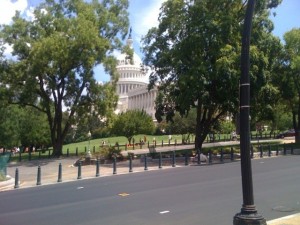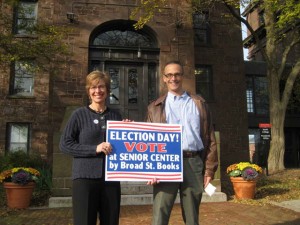Last week I posted the following on the Huffington Post College site. I’ve been thinking about the limits of critical thinking for many years now (in the title essay of The Ironist’s Cage and recently in “Beyond Critical Thinking“); and the course I starting teaching last fall (The Modern and the Postmodern) could be described, I suppose, as an effort to “renew the Pantheon.” That is, I want to give students the opportunity to discover in strong books from the last two hundred years ideas that can make a difference in their lives today. Many professors at Wesleyan offer students the opportunity to ignite or re-ignite their relation to diverse cultural forms. That’s one of the ways students learn to discover opportunities, by finding achievements in other (sometimes surprising) times and places.
Reading David Denby’s New Yorker review of Woody Allen’s Midnight in Paris, I was struck by the phrase he uses to describe the director: “The ultimate fan of great musicians and writers, the culture-mad student forever renewing the pantheon.”
What does it mean to renew the pantheon? In the case of Midnight in Paris it means envisioning a city and conjuring up artists who spent time there in the finest fantasy versions of themselves. Owen Wilson plays a writer who is looking for renewal, for creative inspiration that will change his life and work. When he hears the clock strike midnight, he travels back in time to the Paris of the 1920s, the city of his dreams, where he runs into Gertrude Stein, Picasso, Dali. This is often played for laughs, as when Hemingway speaks with the predictable clipped phrases and frequent references to fighting and courage. Paris likewise is presented as a series of visual clichés, but the shots are filled with so much affection that they exude more charisma than familiarity.
What does it mean to renew the pantheon? I’ve been thinking about the resistance of some of my own students to this renewal — a resistance accrued over years of being encouraged in school to become better “critical thinkers.” It is, alas, so much easier to find reasons to turn oneself off to a work of art (music, literature, film) than to discover how to open oneself up to it. And you often look smarter when you criticize something than you would if you embraced something. Condemnation seems to elevate the critic (especially when the critic is ironic), and so it’s often safer than finding what the powerful core of a work might be.
Like all my faculty colleagues, I want my students to develop their capacities for analysis, critique, evaluation and discernment. And like many, I want them to deepen their receptivity and expand their ability to take pleasure in a wide range of cultural expressions. I want them to experience wonder in the face of elegant experimental design, intricate musical or sculptural patterning, insightful literary or philosophical expression. Often the efforts to teach critical evaluation and expansive receptivity are in tension with one another.
When do “culture-mad students” more generally display the urge to renew the pantheon rather than to deconstruct it? Better yet, when can that deconstruction be a form of renewal? It happens when students are able “turn themselves” in such a way as to grasp what a work (or its author, if you prefer) is trying to achieve. Depending on what area the work is in, this takes empathy, language or math skills, and the informed imagination that comes from contextual thinking (as in history and anthropology). Turning oneself toward greater receptivity takes work, but the rewards are powerful — sometimes even transformative.
Increasing students’ ability to feel wonder in the face of important cultural achievements has been one of the great goals of a liberal education. Expanding our notions of what counts as cultural achievement is part of the educational process. You don’t always have to settle for the fast food culture that surrounds us, although sometimes one can find achievements there, too.
I can already hear the complaints that this view is elitist and impractical. On the contrary, what I am describing can be democratic and pragmatic (though I admit that it doesn’t have to be either). Finding beauty or thoughtfulness in surprising places can expand one’s appreciation for the possibilities of greatness, of lasting accomplishments. No genre of person or activity is excluded in advance, and this basic openness is intensely democratic. Why is this expansion of cultural horizons pragmatic? The process of discovering power in poems or pictures you at first didn’t understand, or in lines of inquiry that had seemed pointless, can strengthen capacities to discover opportunities generally. And just as we recognize that problem-solving is practical, we must acknowledge that discovering opportunity is pragmatic. Indeed, it is vital to our ability to shape the future.
I am hopeful that those who will shape the future will also have cultivated the ability to renew the pantheon of great work from the past. The pantheon will change over time as what we need from the past and recognize in it change. But unless we want to be stuck with the status quo, we must strive to hear our clocks strike midnight — to travel through different times and places to renew the possibilities for alternative futures.





